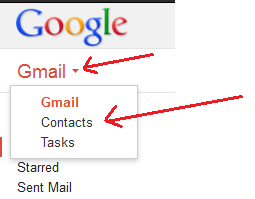5 Critical Skills to Develop as a Small Business Owner

There’s no denying that it’s not easy to run your own business. Managing every aspect of your business, from staff and operations to marketing and budgeting requires a great deal of hard work, and more than a little know-how.
As a small business owner, you do not necessarily need to be a master of every aspect of business. However, there are certain skills that are essential to develop in order to be successful. Here are the top 5 critical skills every small business owner should develop.
1. Work Ethic
When we talk about the necessary skills and qualities of successful entrepreneurs and business owners, we often speak about things like creativity, innovation, drive, and courage. However important these kinds of qualities are, this overlooks one very important aspect: work ethic. When it comes down to it, running a business is simply hard work.
This means that no matter how creative you are, or how many great ideas you have, if you are not prepared to put in the long hours you simply will not be successful. A strong ethic is essential for any small business owner, and contrary to what you may think, it is also something that you can develop. Some people may be born naturally more hard-working than others, however, any one can train themselves to have a strong work ethic with plenty of organisation and self-discipline.
2. Financial Management Skills
No matter the kind of business you are running, at the end of the day it needs to make money. Business, at its heart, is all about turning a profit. Unless you are incredibly lucky, it is almost impossible to do this without sound financial management.
Not all people have an innate head for numbers, nor does everyone have significant experience in financial management. However, as a small business owner it is critical to develop these skills, whether through formal training or learning about budgeting, planning, tracking and cash flow from others or online. Being able to balance the books and budget for the future is the only way to ensure that money will be heading in the right direction.
3. Technical Understanding
We live in a modern, high-tech age. This means that technology touches every aspect of business these days, no matter how small your business and even if you are not operating in a technological sector. Your business doubtless uses digital marketing methods, electronic payments, software to balance your books, and countless other types of technology on a day-to-day basis.
This means that even if you are not particularly technologically-minded, it is important that you develop at least basic technical skills. You should be able to confidently use a computer and all the relevant software, as well as the various other pieces of technology that are applicable to your business. Luckily, another feature of the modern age is that tech training is highly accessible: there are a larger number of online courses, tutorials, videos and so on that you can use to get yourself up to speed.
4. Basic Marketing Skills
Running a business of any kind is essentially about two things: having a great product and getting that product out there to people who will buy it. The latter is where marketing comes in. As a small business owner, you probably have a good understanding of the product you are selling. However, there is nothing to say you’ll have any knowledge or expertise in marketing.
A strong marketing strategy and effective marketing tactics are essential for promoting your product, gaining a customer base, and driving profit. Otherwise, you may have the best product in the world but no one will buy it because they don’t know it exists. Skill up in marketing through formal or informal courses, following leading marketing blogs and podcasts, and investigating a range of marketing tactics, such as social media, SEO, advertising and trade show booth marketing.
5. Vision
Whether you want to grow your business rapidly or are content to simply continue with your current trajectory, you need to know where you’re going. A strong sense of vision is essential to be able to lay out short and long term plans, decide how to delegate funds, and even know how to spend your time. Be sure to develop a strong vision for where you want your business to be in one, five, and ten years’ time, and constantly keep this in mind. It is also important to be able to translate this vision into reality. To do this, you will need to be able to develop a strategy, and so strategic planning skills are also key. This is another area where there is a great deal of training available, both through educational institutions and online







